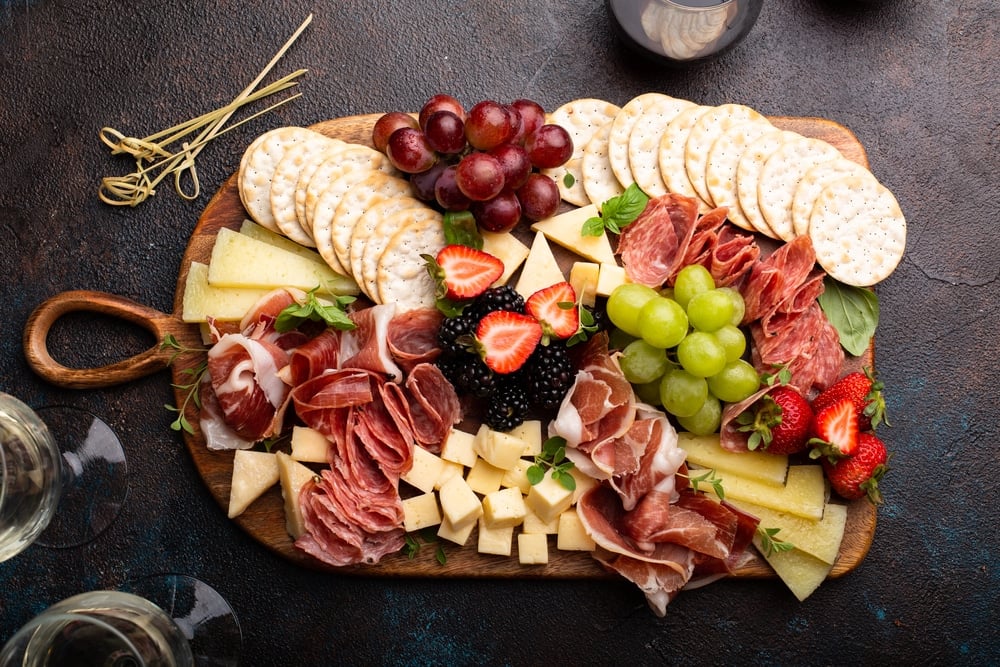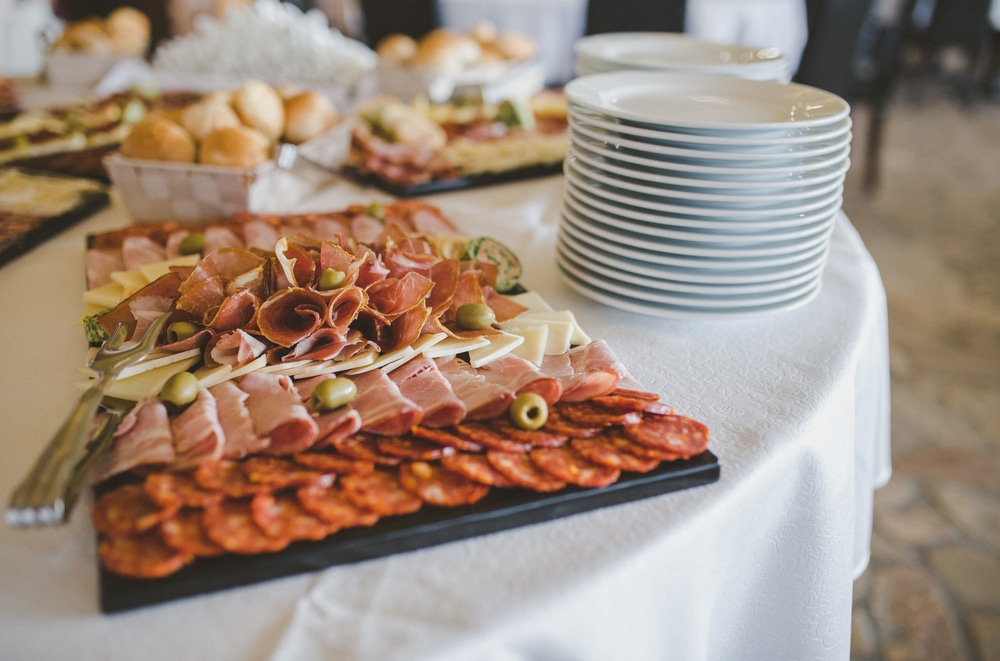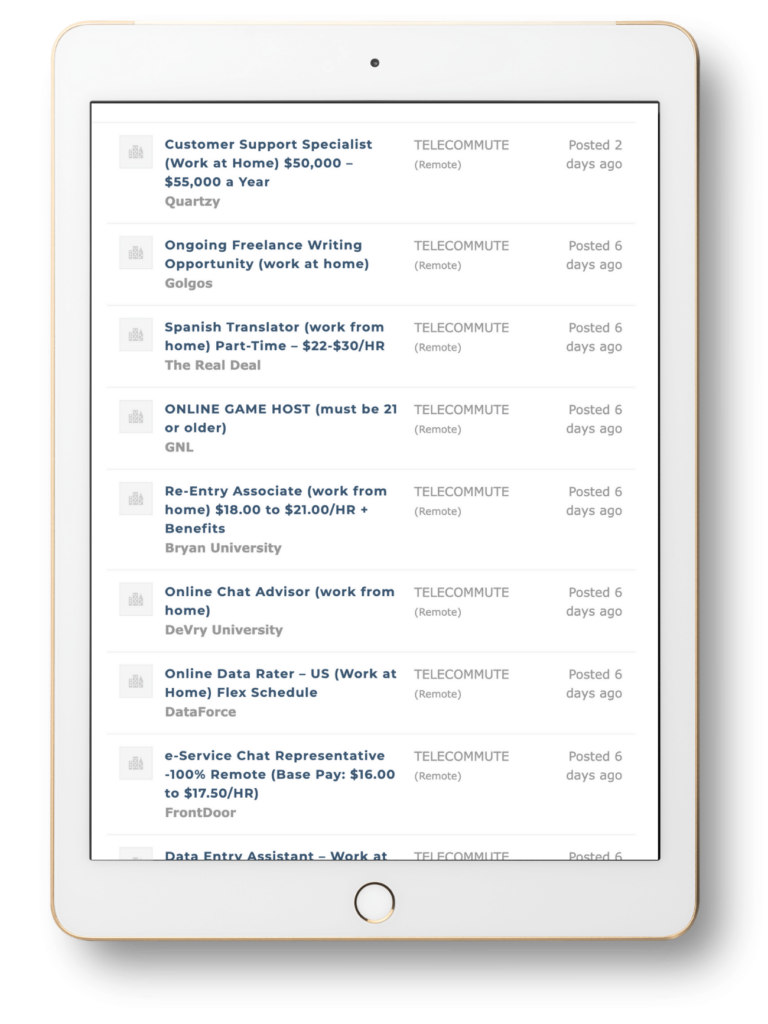This post may contain affiliate links. If you make a purchase through links on our site, we may earn a commission.
Charcuterie Board Business – Step by Step Guide

A charcuterie board business? Yes!
I am no stranger to charcuterie boards, after hearing so much about Oprah loving Boarderie and giving them as gifts, I ordered one for my Halloween party. Wow! It was such a hit and everything was fresh and yummy. We got to try things we'd normally never have at home or think to buy. (I had no idea I would love spicy, citrus olives!?!) It was delicious and a new food experience. Win-Win! I've ended up ordering two more since then — both as holiday gifts!
This is when it dawned on me, that there just aren't a lot of places to order these from. Especially for people like me with very little time or aren't very kitchen-creative! You can see here, at Tastewise, that charcuterie board sales are on the rise.
It you're passionate about food and looking to start a home business? Charcuterie boards could be the popular trend that becomes your lucrative and enjoyable venture. However, lets keep it real, it can be overwhelming to know where to start. That's why I've created a step by step guide to help you make your dream a reality. Let's delve into it.
Step 1: Research
Before starting your own charcuterie board business, it is important to do your research. This includes looking at local and online competition, understanding your target market and determining the different types of boards to offer. You can also research suppliers for cheese, meats, and other ingredients. It is equally essential to research food safety regulations, permits and licenses, and insurance requirements before you start your business.

Step 2: Identify Your Charcuterie Board business Niche
To stand out from competitors, it is important to identify your niche in the charcuterie board business. This could be offering customized boards for weddings, corporate events, or game nights. You may also consider offering vegan, gluten-free, or keto-friendly options for your customers. Once you identify your charcuterie board business niche, create a unique brand that resonates with your customers which can include a logo, mission statement, and website.
Step 3: Create Your Menu
Create a diverse menu of charcuterie boards that cater to your customers while incorporating your niche. Offer various boards in different sizes and shapes for different servings, themes, and events. Your menu should include everything from classic cheese and meat boards to unique selections with fruits, nuts, and bread.
Step 4: Source for Items and Budget
Once you have your menu and niche, start sourcing for the items you need for your charcuterie board business. Create a budget by factoring in expenses like supplies, licenses, permits, and insurance. Determine how much to charge to make a profit and reflect on your break-even point. A good place to start when sourcing for items is to find local farms, cheese and wine shops, and other small businesses that carry unique products in bulk.
Step 5: Promote Your Business
You have got everything in place, your menu, niche, and suppliers, now it’s time to promote your business and get the word out. Promote through social media channels like Facebook, Twitter, and Instagram. Make use of events, fairs and markets to interact with potential customers. Offer samples to shops that can sell your finished products or partner with event planners that can add your boards to their offerings. Always research and collaborate with local businesses that share your values, and lastly, never forget to ask for reviews and ratings from your clients.
bonus:
charcuterie board Business Supplier Idea List
- Local Farmers' Markets
Supporting local farmers and small businesses is not only great for the community, but it also ensures that you are getting high-quality and fresh ingredients for your charcuterie board. Many farmers' markets offer a variety of cured meats, artisanal cheeses, and homemade spreads that would be perfect for your board. - Specialty Delicatessens
If you're looking for unique and high-quality items to include on your charcuterie board, specialty delicatessens are a must-visit. These stores often carry imported meats and cheeses from different regions, as well as gourmet spreads and condiments that will elevate your board to the next level. - Online Retailers
For those who prefer convenience or may not have access to local vendors, there are many online retailers that specialize in charcuterie board supplies. These retailers often have a wide selection of cured meats, cheeses, crackers, and other accompaniments that can be delivered right to your doorstep. - Butchers
Don't overlook your local butcher when sourcing items for your charcuterie board. They can provide you with freshly cut and sliced meats such as prosciutto or salami, as well as recommendations on which cuts of meat would work best for your specific board. - Cheese Shops
A good cheese shop will have a knowledgeable staff who can help guide you in selecting the perfect cheeses for your charcuterie board. They may also offer samples so you can taste before you buy. - Wine Stores
No charcuterie board is complete without a good bottle of wine to pair with it. Visit your local wine store for expert recommendations on which wines will complement the flavors of your chosen meats and cheeses. - Supermarkets
While they may not have the same selection as specialty stores or vendors, supermarkets still offer a variety of options when it comes to building a charcuterie board. Look for gourmet sections or deli counters that offer a variety of cured meats and cheeses. - Local Bakeries
Freshly baked breads, crackers, and baguettes are essential for any charcuterie board. Support your local bakery and pick up some freshly baked goods to add to your board. - Online Marketplaces
In addition to online retailers, there are also online marketplaces such as Etsy or Amazon that offer a wide range of charcuterie board supplies from different vendors. This is a great option for finding unique or hard-to-find items. - DIY Options
Don't be afraid to get creative and make some items for your charcuterie board yourself. This is your charcuterie board business after all! Homemade spreads, pickles, and jams can add a personal touch and impress your guests with your culinary skills. Plus, it's often more cost-effective than purchasing pre-made options.
My Final Thoughts on a Charcuterie Board Business
Starting your own charcuterie board business requires time, patience, and research, but with the right approach, it can be a successful and rewarding venture. Remember to do your research, identify your niche, and create a unique brand. Once established, always aim to offer customized, diverse, and unique boards. Promote your business on all platforms, work with other local businesses, and always ask for feedback. These simple steps will differentiate your brand and establish you in a growing niche market.
Read my post, Home Business Ideas for more ideas for starting your own biz and becoming your own boss!








